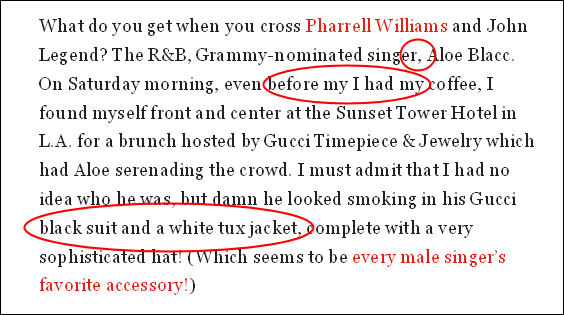When you’re looking for reliable information about investing, finance, or business, what website do you turn to? Yahoo! Finance? If you’re like most people, you’re adversely influenced by the number of mistakes, no matter how minor, you find. Typos, misspellings, and grammar mistakes all erode the credibility of a website or an article.
So, how credible do you find this article, where the writer apparently knew she needed an apostrophe in the first sentence, but couldn’t figure out where? Or that she’s a little skimpy when it comes to her hyphen usage?

(Omitting the hyphens in an age is one of the top 3 hyphen errors you’ll find on Yahoo!.)
I really think that if you’re going to write about finance and business for adults, you need to know the difference between a product (oh, like, say a Barbie doll) and a manufacturer (like Mantel). I’m pretty sure that even though Barbie is a pretty smart, yet plastic cookie, she did not release a doll:

Perhaps to prove that she is completely uninterested in the correct use of punctuation, the writer throws in some random and thoroughly incorrect commas. But I’ll admit to one positive note: The writer has got me interested in seeing those ads where the Chinese actress stares, presumably at the camera:



















